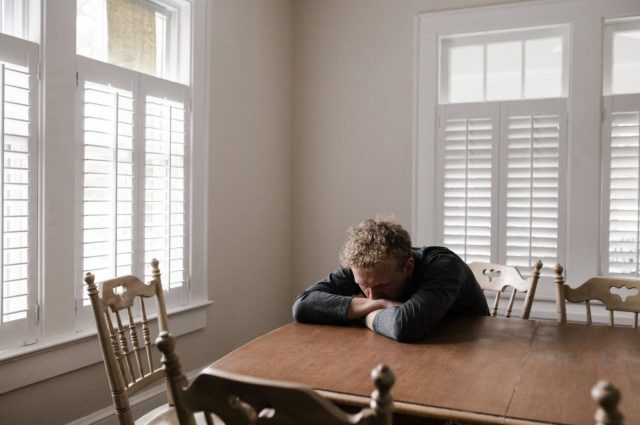Dealing with every problem in your life head-on can seem like a good strategy for a short while. But in the long term, this strategy can have adverse effects on your mental health. Not dealing with your problems in a healthy manner can cause emotional and psychological distress that often results in mental and bodily illnesses. There are times when you have to sit down and address your emotions, thoughts, habits, and behaviors with an objective point of view to understand them. Doing so will help you recognize the shortcomings in your daily habits and external factors that affect your mental health. But it is challenging to recognize the problems you face regarding your mental health. Some prominent signs can help you identify the problem determining the detrimental effects on your mental well-being. Prioritizing your mental and emotional health is absolutely crucial. This guide will provide you with the necessary tools to achieve the stability you need.
- Isolating Yourself
One of the most concerning signs of mental health illness is that you begin isolating yourself from other people consciously or unconsciously. You may not know the reason why you separate yourself or may feel that other people tire you out, upset you, or you find them untrustworthy. In times like these, you need help from a professional to deal with your emotional distress and mental problems. There are many qualified counselors with an online MPA degree who can help you relieve your emotional and mental stress. Keep in mind that isolating yourself entirely from other people is never a good idea. Therefore, if you are stuck in a similar situation, seek the help of a professional immediately.
- Consuming Unhealthy Amounts of Caffeine
You may think that you need all those cups of coffee to keep you awake. But the problem can be that you are trying to get a temporary boost of energy when you feel down or lazy. Having too much caffeine can harm your mental health. When consumed in large amounts, caffeine can produce symptoms of depression and cause sleep problems. You can lower your caffeine intake by turning to other sources of gaining energy. These can include catching up on your night sleep, taking a short nap, or exercising in the morning.
- Getting Angry at The Smallest Things
Irritability, anger, and frustration can be a sign that you are repressing something within you. Getting angry at the slightest inconvenience shows that you are frustrated on a deeper level because of a matter that you don’t fully understand. Frustration and anger are also indicators of depression and anxiety. Moreover, having a breakdown or lashing out at minor things can burn you out emotionally, mentally, and physically. If such a thing happens, the best solution is to determine the root cause of the problem. Thus, seek help and support from your friends, family, or professionals.
- Staying Up All Night Long
Staying up all night is not healthy for anyone. Staying up late, even if it is to study or work, can negatively affect your health. At the same time, research proves that mental health disorders can often disrupt your sleeping schedule. Thus, having a disoriented sleeping schedule can trigger symptoms of anxiety and depression. Moreover, the disruptive sleeping schedule often makes the symptoms of present illnesses even worse. The best thing you can do in this situation is to fix your work and sleep schedule. Divide your studies and work tasks during the daytime and complete them before the night. At night, focus on getting a healthy amount of sleep and adhere to this schedule every day. If you feel like your sleep pattern isn’t getting any better, consult with your therapist or doctor.
- Varying Eating Patterns
Many factors can affect your eating patterns like hormones, daily activity, food quality, etc. But mental health problems such as anxiety, depression, and stress can affect your appetite. For instance, you may eat too much or too little as a trigger response. If there are external factors at play, then the problem will resolve on its own quickly. But suppose this problem persists for an extended period. In that case, there is a possibility that some mental illness is causing it.
- Despise Working
While it is common to have some off days where you don’t find the energy to work, it is alarming if this symptom persists daily. Indifference and nonchalance regarding work can be a sign that you are facing mental and emotional burnout. Issues such as anxiety and depression play a massive role in this regard. There can be many causes for this problem. If you are dissatisfied with the workplace environment and find no job satisfaction, it can trigger depression. If you want to ditch work more than usual and it affects your job, consult with a counselor or therapist for help.
Conclusion
Mental health stigmas have existed within this society for a long time. But there is no shame in them. Having mental issues is similar to having flu or fever as it gradually deteriorates your health. Seeking help from a professional in these times is beneficial and can help you get your life back on track. The signs mentioned above are some of the primary symptoms that you or someone close to you may face. If you observe them in yourself or your loved ones, seek professional help.


